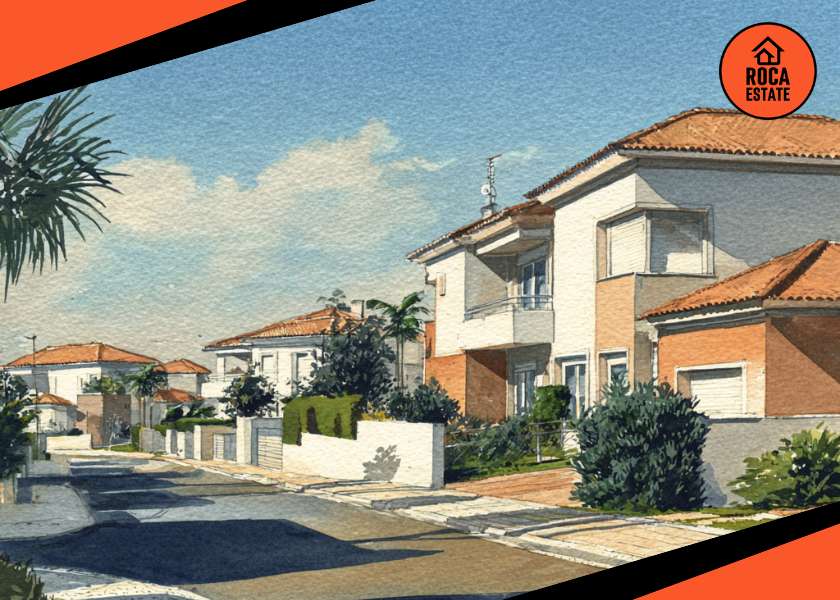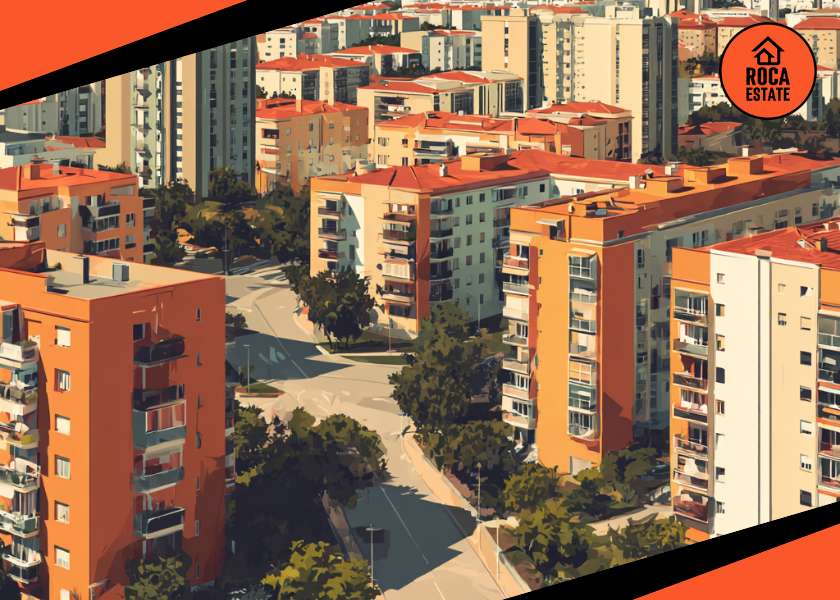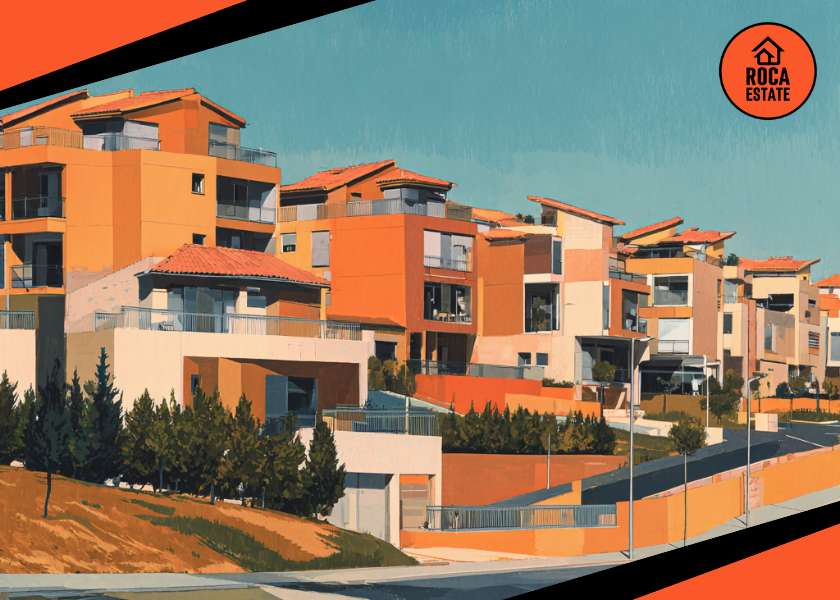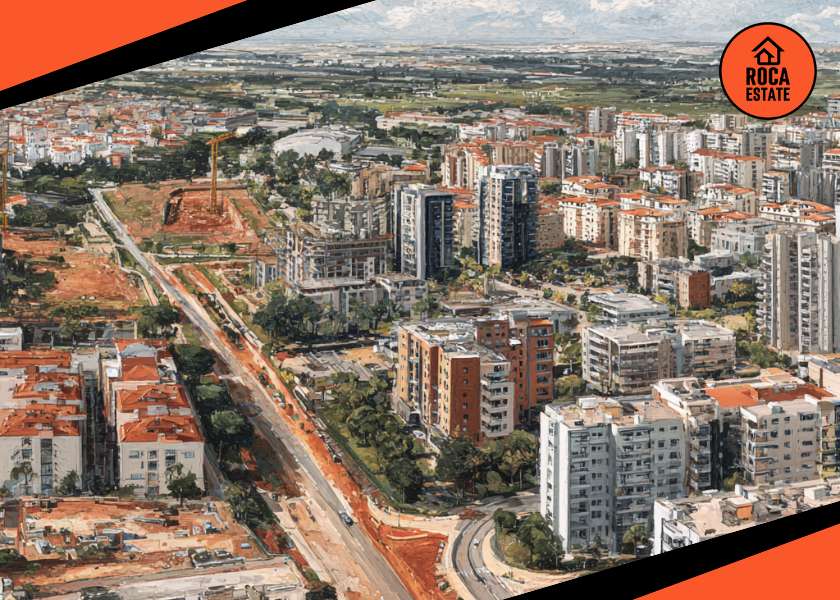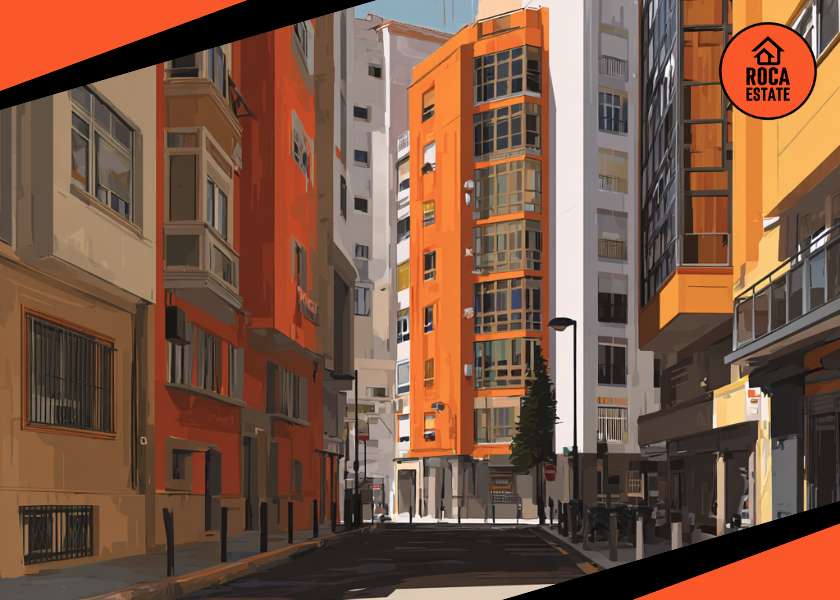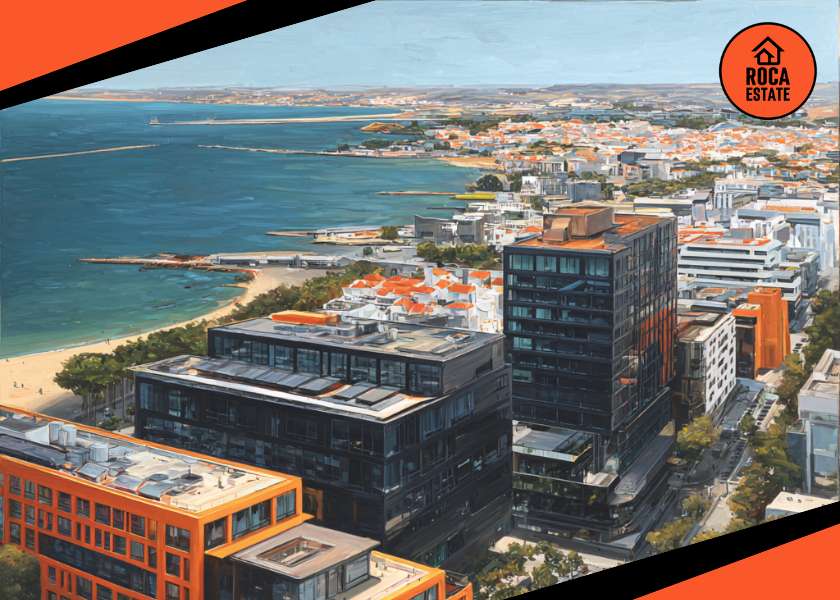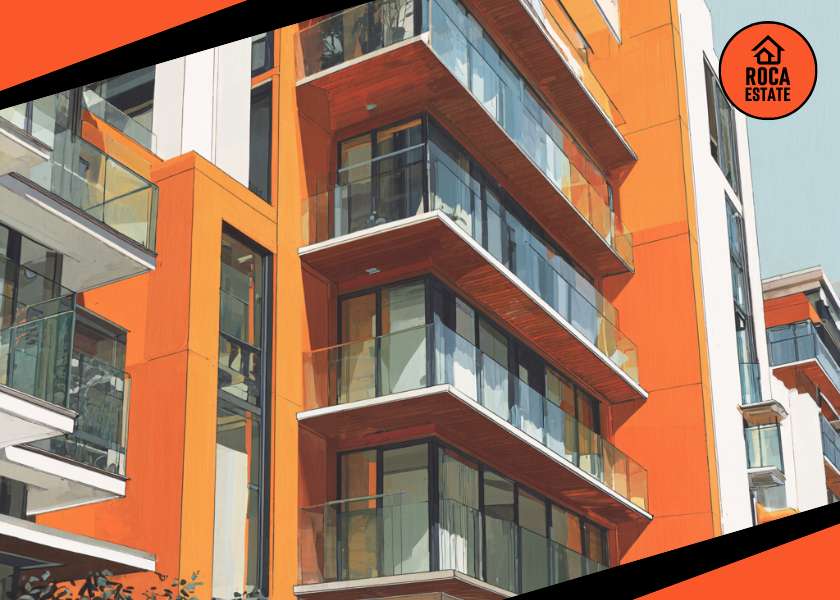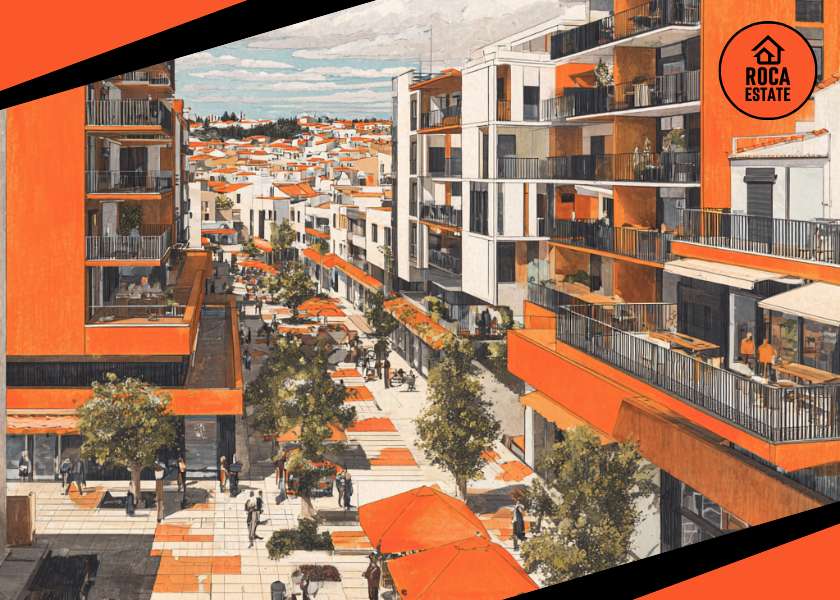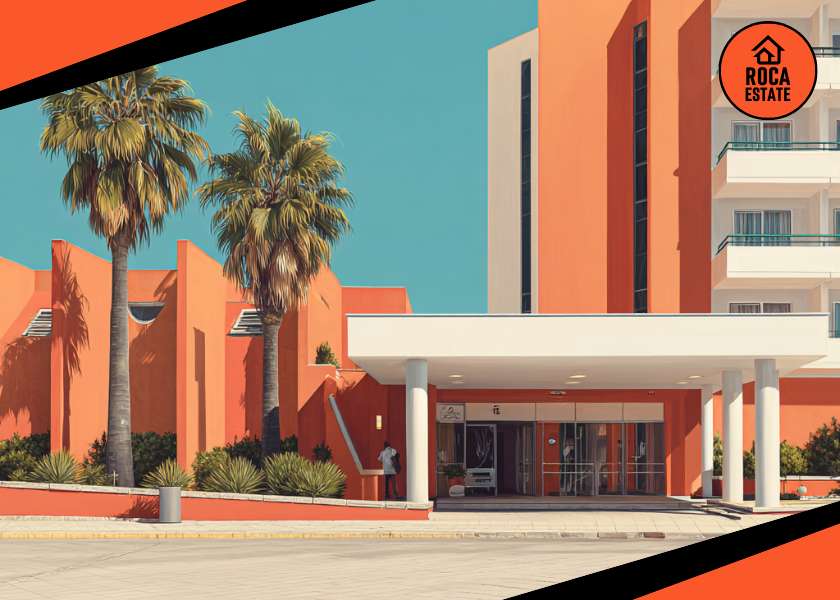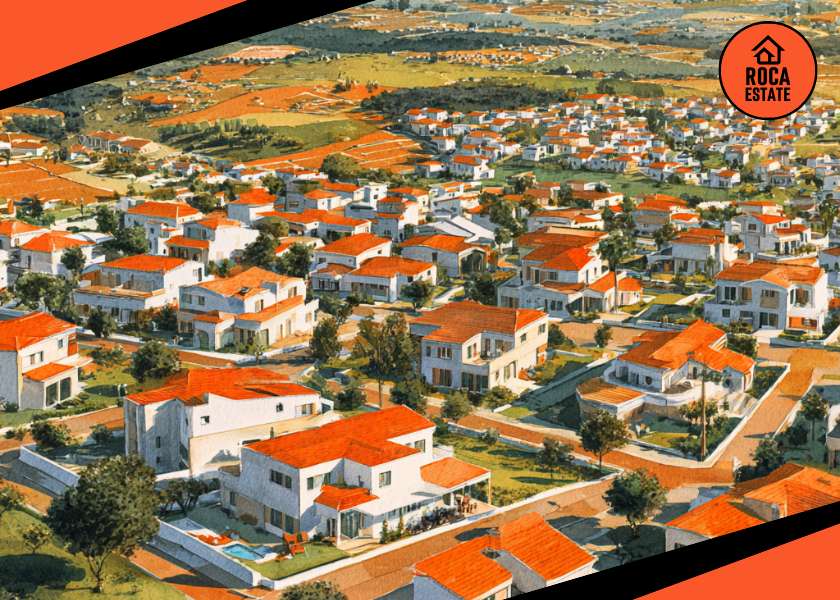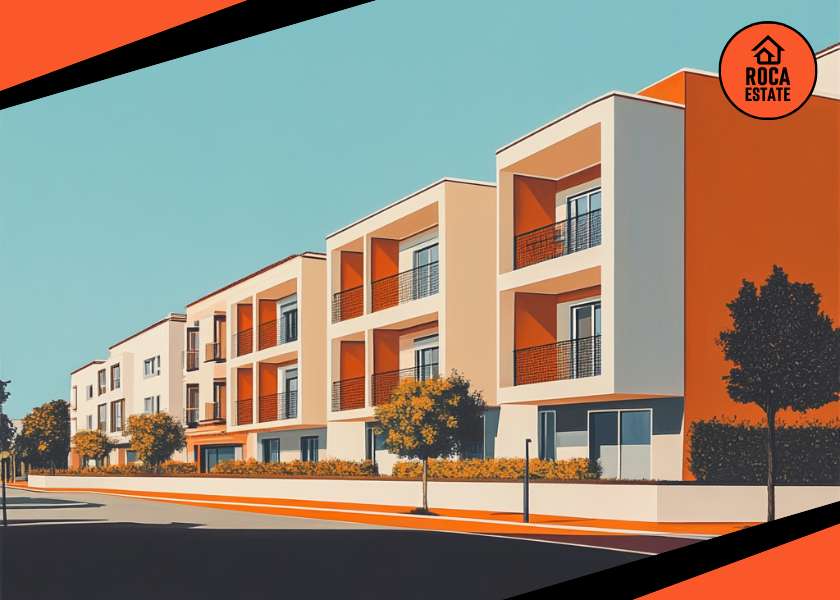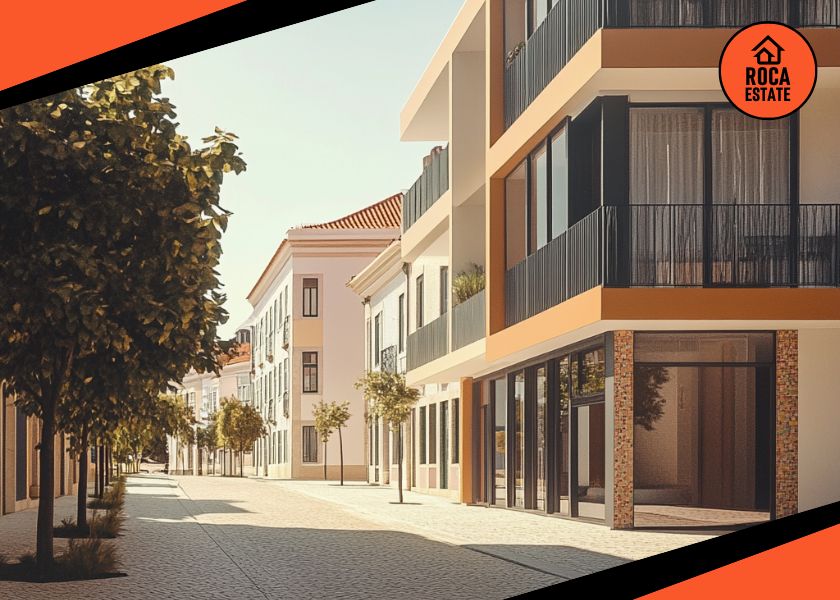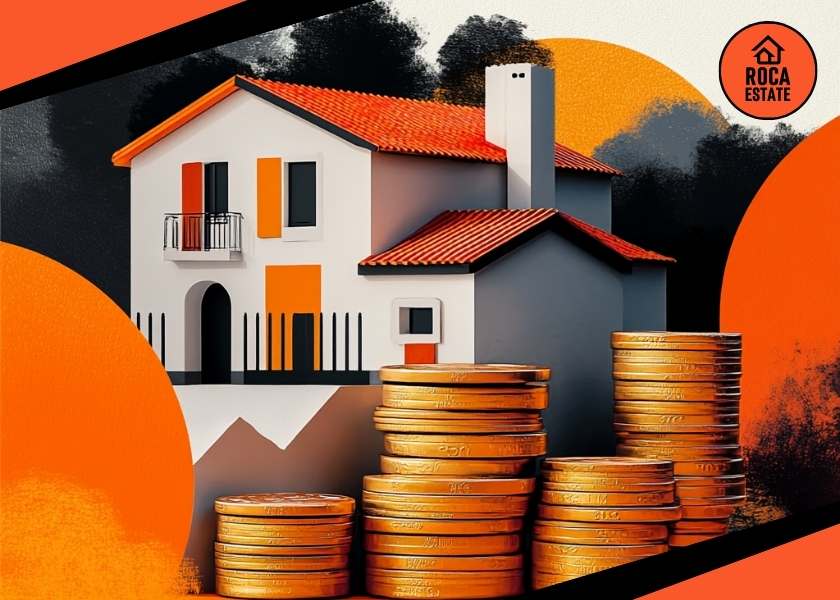Commercial real estate investment in Portugal is increasingly shaped by inflation and deflation trends. For investors, understanding the difference between these dynamics and their implications for real estate is more than an academic exercise. Inflation can drive up asset prices and rents, but it also raises borrowing costs and creates volatility. Deflation, on the other hand, may seem benign at first, but often signals deeper weaknesses in consumption, investment, and debt sustainability.
As inflation moderates across much of Europe in 2025, including in Portugal, questions arise: What does this shifting landscape mean for commercial real estate? Are we entering a period of renewed stability, or is there still risk of economic softening? How should investors approach real estate assets in a market where prices, yields, and macro indicators are in transition? This article explores those questions in depth, focusing on Portugal’s unique position in the European property market and the opportunities emerging within its key CRE sectors.
Is Deflation Bad?
Deflation – a sustained decline in the overall price level – can seem positive at first, offering consumers lower costs. But for the broader economy and investors, particularly in real estate, deflation is typically a warning sign of weakening demand and financial stress.
When prices fall over time, consumers and businesses tend to delay purchases, expecting better deals in the future. This reduces overall spending and slows economic activity. As revenues decline, companies cut costs, often through layoffs or reduced investment, further weakening demand and reinforcing the cycle.
Key risks of deflation include:
- Rising real debt burdens: Fixed debts become harder to repay as money gains value.
- Corporate pressure: Declining revenues compress margins and increase default risk.
- Policy limitations: With interest rates already low, central banks have limited tools to stimulate demand.
- Investor uncertainty: Falling prices make it harder to assess asset value and performance.
While deflation driven by productivity gains or sector-specific corrections can be benign, prolonged deflation across the economy is typically associated with stagnation. For real estate investors, it often leads to falling asset prices, stagnant rents, and increased credit risk – conditions that undermine long-term returns.
Why Inflation Is Usually a Problem
Inflation – defined as the general increase in prices over time – is a normal feature of most economies. In moderate doses, it can support growth by encouraging spending and investment. However, when inflation becomes elevated or unpredictable, it undermines economic stability and introduces risks that affect both consumers and investors.
One of the most immediate effects of high inflation is the erosion of purchasing power. As prices rise faster than wages, households struggle to maintain their standard of living. This can lead to reduced consumption, especially among lower- and middle-income groups, weakening overall demand in the economy.
For businesses and investors, inflation introduces uncertainty. It becomes more difficult to forecast costs, set prices, or assess the real value of future cash flows. This unpredictability often leads to reduced investment and a shorter-term planning horizon.
Other key risks of inflation include:
- Reduced real returns: If asset growth or interest income doesn’t keep pace with inflation, real returns decline.
- Distorted pricing: Inflation can blur market signals, making it harder to distinguish between real growth and nominal price changes.
- Wage-price spirals: Rising prices lead to higher wage demands, which in turn drive further price increases.
- Unequal impact: Inflation disproportionately affects savers, retirees, and those with fixed incomes.
While inflation can ease debt burdens and allow flexibility in pricing, its negative effects, particularly at higher levels, tend to outweigh the benefits. For real estate investors, inflation must be carefully managed, especially when it affects financing costs and tenant affordability.
Is Inflation Good for Real Estate?
Real estate is often viewed as a natural hedge against inflation, and in many cases, this reputation is well earned. When inflation is moderate and predictable, real estate assets – particularly income-generating properties – can maintain or even increase their value. However, the relationship between inflation and real estate is nuanced, and the impact depends on several variables, including interest rates, lease structures, and market fundamentals.
One of the key advantages of real estate in an inflationary environment is its ability to generate rising income. Rental agreements, especially those indexed to inflation, typically adjust over time, allowing landlords to preserve purchasing power and maintain cash flow. Additionally, as construction and replacement costs rise, existing properties may appreciate in value due to higher barriers to new supply.
Key benefits of real estate during inflation include:
- Income growth: Rental rates can adjust upward, particularly in high-demand sectors.
- Asset appreciation: Rising construction costs and land scarcity often push property values higher.
- Debt advantage: Fixed-rate financing becomes more favorable, as loan repayments are made with less valuable currency over time.
However, inflation also carries risks for real estate investors. Central banks may respond with higher interest rates, increasing borrowing costs, and reducing asset affordability. Tenant affordability may also come under pressure, particularly in the residential and retail sectors, potentially affecting occupancy and rent collection.
In summary, real estate can perform well during inflation, especially when investments are structured with long-term leases, quality tenants, and prudent financing. But success depends on navigating inflation’s indirect effects – especially rising interest rates and shifts in demand.
Portugal in 2025: Inflation Stabilizing, Growth Holding
Current Trends
Portugal enters 2025 with a relatively stable macroeconomic outlook, marked by easing inflation and resilient growth. According to EQTY Capital, the country’s inflation rate has moderated to 1.9% as of March 2025, down from 2.4% in February, reflecting improved energy price stability and broader alignment with the European Central Bank’s 2% target (EQTY Capital, 2025). This stabilization enhances predictability for investors, especially in sectors such as commercial real estate, where price and cost visibility are critical.
On the output side, domestic demand remains strong, supported by robust private consumption, rising employment, and steady wage growth. CaixaBank Research anticipates GDP growth of 2.4% in 2025, citing gains in productivity and increasing momentum in tourism, exports, and real estate-linked investment (CaixaBank Research, 2025).
Forecasts
The outlook for Portugal remains positive across multiple institutional forecasts. The European Commission projects inflation to remain at 2.1% in 2025, gradually easing to 2.0% in 2026, while GDP growth is expected to reach 1.9% in 2025 (European Commission, 2025). Similarly, the Bank of Portugal slightly revised its growth estimate upward, reflecting stronger-than-expected domestic demand and moderate fiscal expansion, while confirming that inflation is largely under control (Reuters, 2024).
Deflation Risk
At present, deflation does not pose a significant risk to the Portuguese economy. While inflation has decelerated, it has done so in a controlled and expected manner, without signaling broader economic weakness. Core indicators – such as employment growth, consumer spending, and capital investment – remain healthy, supporting internal demand and mitigating the risk of a downward price spiral.
In this context, Portugal is navigating 2025 with a balanced macroeconomic profile. Inflation is no longer a source of concern, nor is deflation a looming threat. For investors, particularly in commercial real estate, this environment presents a foundation of price stability and economic resilience – two essential conditions for sustainable asset performance.
Commercial Real Estate Market: Sectoral Strength and Investor Momentum
Market Performance and Investment Trends
Portugal’s commercial real estate (CRE) sector has entered 2025 with renewed strength and increasing investor engagement. In the first quarter alone, total CRE investment reached €651 million – an impressive 151% increase compared to the same period in 2024 (Portugal Buyers Agent, 2025). This surge reflects heightened confidence in the Portuguese market, driven by a stable macroeconomic environment, solid consumer demand, and improved financing conditions.
Market analysts project an 8% growth in total commercial real estate investment for the year, potentially pushing volumes to €2.5 billion (Iberian Property, 2025). The recovery is broad-based, attracting both institutional and private capital, and is particularly concentrated in Lisbon, Porto, and key secondary markets.
Sector-Specific Outlook
The retail sector has shown surprising resilience, supported by a 4% increase in retail trade volumes and sustained demand for well-located high-street assets (Medium, 2025). Urban regeneration projects and growing tourism flows have further contributed to foot traffic and tenant demand in central retail corridors.
Hospitality remains one of the most dynamic segments, accounting for 24% of total investment in Q1 2025. Hotel development and repositioning strategies are gaining traction, particularly in Lisbon, Porto, and the Algarve.
Meanwhile, the logistics and industrial segments are benefiting from e-commerce expansion and nearshoring trends. Investors are increasingly targeting last-mile distribution centers and modern logistics parks. The office sector is also recovering, with rising demand for sustainable, flexible workspace solutions and a corresponding rise in prime rents (CBRE Portugal, 2025).
Economic Environment and Investment Climate
Portugal’s broader economic conditions are reinforcing the CRE sector’s appeal. With inflation moderating and GDP growth expected to reach 1.9–2.4% in 2025, the environment is conducive to stable rental yields and capital appreciation. Interest rates are also expected to stabilize or gradually decline, improving access to credit and supporting transaction activity.
Investor sentiment is further bolstered by favorable fundamentals: low vacancy rates in core markets, rising demand for ESG-compliant assets, and a well-capitalized banking sector ready to support real estate financing. Compared to other Western European markets, Portugal continues to offer a compelling yield premium, particularly in retail, logistics, and value-add opportunities.
Overall, the commercial real estate landscape in Portugal is entering a phase of measured expansion, characterized by strong sectoral fundamentals, increasing capital flows, and a macroeconomic backdrop that supports long-term investor confidence.
Strategic Considerations and Risks
While Portugal’s commercial real estate (CRE) market continues to present attractive opportunities, investors must navigate several strategic considerations and emerging risks to ensure sustainable returns.
Rising Construction Costs
Construction costs in Portugal have been on an upward trajectory. As of March 2025, building new homes saw a 3.8% year-on-year cost increase, primarily driven by a 7.1% rise in labor expenses and a 1.1% uptick in material prices. This escalation impacts project feasibility, especially for new developments, and necessitates careful budgeting and cost management. The Portugal News
Interest Rate Volatility
Interest rates remain a pivotal factor influencing investment decisions. In April 2025, the European Central Bank reduced its key interest rate by 25 basis points to 2.25%, marking the seventh cut within a year. While this easing aims to stimulate economic activity, investors should remain vigilant, as future monetary policy adjustments could affect borrowing costs and asset valuations. Reuters
ESG Compliance and Regulatory Landscape
Environmental, Social, and Governance (ESG) considerations are increasingly influencing investment strategies. Although Portugal currently lacks mandatory ESG requirements for real estate, institutional investors are progressively adopting green lease provisions and sustainability measures. Staying ahead of potential regulatory changes and aligning with ESG best practices can enhance asset appeal and long-term value. CMS Law
Credit Access and Financing Conditions
Access to credit is tightening across the eurozone. A European Central Bank survey from January 2025 indicated that banks have increasingly restricted credit availability to firms, particularly in sectors like commercial real estate. This trend underscores the importance of robust financial planning and exploring diverse financing options. Reuters
Sector-Specific Dynamics
Different CRE sectors face unique challenges. The retail sector must adapt to evolving consumer behaviors and the rise of e-commerce, while the office market contends with shifts toward hybrid work models. Investors should conduct thorough market analyses to identify assets with resilient demand and adaptability to changing tenant preferences.
In conclusion, while Portugal’s CRE market offers promising prospects, a nuanced understanding of construction costs, interest rate trends, ESG considerations, financing conditions, and sector-specific dynamics is essential. Strategic planning and proactive risk management will be key to capitalizing on opportunities and mitigating potential challenges.
A Window of Opportunity
Portugal’s commercial real estate market in 2025 stands at a strategically favorable point. Inflation has stabilized near target levels, economic growth is holding firm, and investor sentiment remains broadly positive across key asset classes. From retail corridors in Lisbon to logistics hubs near Porto, the market is demonstrating not only resilience but also the capacity for long-term value generation.
For investors, this moment presents a rare alignment of macroeconomic stability, sectoral momentum, and market accessibility. Capital inflows are growing, regulatory conditions remain favorable, and Portugal continues to offer competitive yield premiums compared to more saturated Western European markets. However, realizing the full potential of this opportunity requires more than capital – it requires local insight, structured analysis, and a clear understanding of evolving market dynamics.
Whether you are seeking income-producing assets, value-add projects, or long-term portfolio diversification, Portugal’s commercial real estate sector offers a robust platform for disciplined investment in a maturing market.
Invest with Roca Estate
Roca Estate provides investors with direct access to high-potential commercial real estate opportunities in Portugal, backed by deep local expertise and a data-driven approach. Whether you’re targeting income stability, asset appreciation, or sector diversification, our team delivers tailored solutions across retail, logistics, office, and hospitality segments.
Partner with Roca Estate to navigate the market with confidence and turn strategic insights into long-term results.


